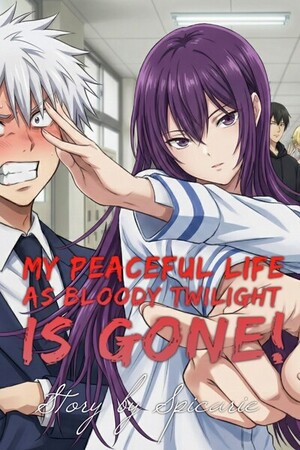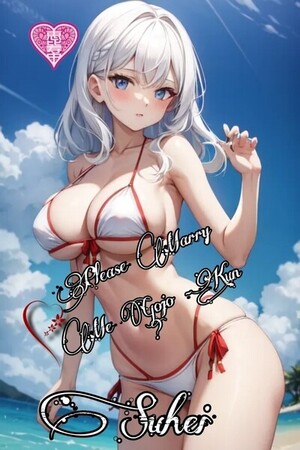Chapter 15:
The Heart Is A Lonely Finder
Miklagardia Days: Double Eagle Story
Time slowed down. There was too much information for my mind to process. I stared at Nika’s gaze. Constellations reflected themselves in pools of her eyes; there was an entire universe within them, unfathomable and unreachable to my grasp. I stood expressionlessly while deciding on my reply.
“Why do you think I don’t like that?” I asked. I couldn’t think of anything better to say.
“There was a look in your eyes. I’ve seen it ever since I met you. It’s like you’re looking at some far away place, a palace you’d rather be. Are you homesick?”
“No it’s not that,” I said. Ordinarily I’d try saying something cool to make myself look good in front of her, but every time I tried that it blew up in my face. I already gave up on this approach to the mission anyway, so at this point it didn’t matter if I said how I truly felt. I was glad to get rid of this weight on my chest.
“It’s—I just don’t understand anything here!”
“That’s it?” Nika laughed. “I was worried it was something serious.”
“Damn it! I am being serious! I don’t understand anything here. Everything you people talk about: tradition, history, faith, community, pride, nationalism. It’s all nonsense to me! It’s as meaningless as ‘zadorf’ or ‘gryber’. I can’t understand anyone. It’s like we’re speaking two different languages. I can mimic, I can pretend, I can blend in, but I can’t ever understand.”
That’s right. I was lost. Completely and utterly lost. I don’t mean in a physical or literal sense, like I was wandering around aimlessly. Actually, I had a clear route in front of me. I mean I was truly existentially lost.
When was the last time you were lost? For me, I was a kid, around eight, maybe nine.
“I’m sure it’s not that bad,” Nika said, breaking me out of my stupor. “Don’t you have that in Ustasia?”
“Maybe at one point we did, but artillery blasted all our ideals away.”
Nika looked at me in confusion.
“Listen,” I said, “I assume you’ve heard of the Firasian Civil War?”
“Of course, it was in our textbooks when I was in school. Miklagardia aided Ustasia in their independence movement. Melissa’s dad was there too,”
“I didn’t realize she was a military brat.”
“Yeah, she loves that kind of stuff.”
I thought back to the light gun game I played with her.
“That makes sense,” I said.
“So what’s this about the Firasian Civil War? Isn’t Ustasia becoming independent a good thing?” Nika asked.
“There’s a lot of people who feel that way, and they’re grateful to Miklagardia for that, especially the current Ustasian government. Maybe I should be too. But there’s a lot of us, maybe even the majority of the population, who just couldn’t take it anymore. All the death and suffering, all the costs we had to pay. I wasn’t even alive for most of it, but my parents were. Their own families were murdered by lynch mobs. My father frequently had to crawl over dead bodies on his way to the factory. Our home was bombed. The enemy was trying to hit an industrial plant. We got hit instead.”
“I’m sorry to hear,” Nika said sadly.
“Eh, don’t be. It’s not like it’s your fault.”
“You said you weren’t alive for most of it?”
“Yeah. Well, I supposed I experienced the war in my own way. My father was ordered to relocate to a factory in a separate part of the country. The official reason was something about him being a vital worker necessary for victory. Maybe he was. But that left my mother all alone. She was pregnant with me at the time, and with nowhere left to go, she was put in a refugee camp. That’s where I was born. I think I was there until I was about three. We still had to live there well after the war ended. I can’t remember too much, but there was a general mood of suffering and misery. No, I can recall something. We never had enough to eat. I can clearly remember that. I was always hungry. Thinking back on it, I think we were in short supply of everything. Clothes, medicine, shelter. I’m getting sidetracked. See, the point I’m trying to make is that ideals like honor and national pride, all those virtues you love, they’re abstractions. They can’t help you when you’re sick, cold, and starving.”
“But they can make it more bearable. Those are ideals that make life worth living!”
“Worth living? Nika, do you remember when we met? You said that Ustasians were Western lapdogs.”
Nika averted her gaze. “Yeah, I think I did. I shouldn’t have. That was rude of me.”
“It doesn’t matter. I don’t care. In fact, maybe you were right. But so what? At least in the West, you can live how you please without constantly worrying about getting your brains splattered across the side of the road because the people in the neighborhood next to yours belong to some different group. Nation, race, language, religion, class, and everything else. All of them. All these divisions and groups. They don’t make life worth living. They cause violence and atrocities. When the Firasian Civil War happened, you had all these different groups vying for power. All of them wanted to win out, to be number one. Well, guess what happened? We all slaughtered each other and broke away into little navel-gazing states. And the border rushes, the mad scramble to get to your group’s territory so you won’t be discriminated against. Now those places saw the worst atrocities. I’ve heard stories from people who were there. They’d make you sick to your stomach.”
Yes. Those stories, that violence, the refugee camp. That was why I had to get the algorithm. I would never let anyone suffer like that again. If I couldn’t get the algorithm, another war could break out. And then!
No. I will not think that. I refuse. That is why I cannot fail. That is why I will not fail. I will get that algorithm. Or else…
Nika fell silent for a few moments, clearly lost in thought. I didn’t feel like interrupting her. I was catching my own breath after that long-winded rant. I felt drained and empty.
I don’t know how much time passed. I couldn’t tell. There was no one else in sight, and the sky itself remained pitch-black, wrapping everything in warm darkness, save for the occasional streetlamp. It was as if time itself came to standstill, leaving everything but us frozen in place so we could have this conversation. Finally, Nika raised her eyes and my tired gaze with a fierce look of determination.
“That’s not right. The killing and suffering. I agree with you there, John. But I can’t agree with the rest! You said people should be able to live how they please. Those groups that fought, they were all full of people too. People who wanted to live how they pleased. People who believed so strongly that they couldn’t live any other way. The suffering you and so many others endured, that wasn’t right, but it wasn’t those beautiful things that were to blame! Even individuals can hurt and oppress others to live how they want. They’ll always exist, even if you get rid of all those ideals you dislike. But the difference is those people can’t bring any joy. They can’t bring people together.”
She paused for a second to wait for a response. I didn’t feel like saying anything, so I let her go on.
“I know you’re still studying Miklagardian history, but this country has a long and proud history, one with as many defeats as victories,” Nika continued. “Miklagardia was founded by a group of soldiers who had lost their homeland. Their city had been sacked, and they were the few that escaped being captured or killed. They had nothing but themselves, and they started the long, arduous journey to find a new home. That place later became Miklagardia. It was lost centuries later after an invasion, and the people had to move to a new home. Then that home was lost, and the people had to retreat to a new home. They were beaten back to the brink of destruction, but they prevailed. The country was smaller, but it was still ours; it was still Miklagardia. We’ve suffered, and we’ve endured poverty. We could have given up, but we didn’t. Because we had each other. The things you don’t understand. The things you say only cause strife: tradition, history, faith, community, pride, nationalism. All of those kept us together. They helped us to survive. We could have been fighting one another for the last scraps when we were stuck in grueling poverty, but we didn’t. We banded together, and we made a prosperous country, a beautiful country, for all of us.”
“Well, that’s all nice and good for you all, but for the Ustasians? For me? It’s impossible. Once we lost those things, there was no going back. Anything else is a sad charade.”
I wasn’t sure why I was responding like that. The normal me would have called her delusional, among other foul expletives. Yet right now, I heard her out. Perhaps I was tired. Perhaps I was in a good mood. Or perhaps there was a small part of me that genuinely wanted to believe her words. I didn’t know. I wasn’t really convinced, but I was interested.
“That’s not true!” she said with a bright smile. “You just need to find it here.” She covered her chest with her hand.
“In your heart!”




Please sign in to leave a comment.